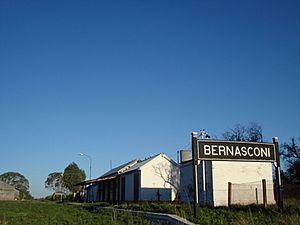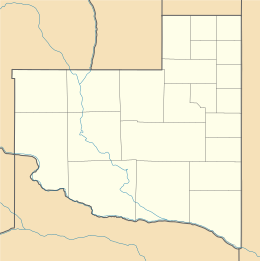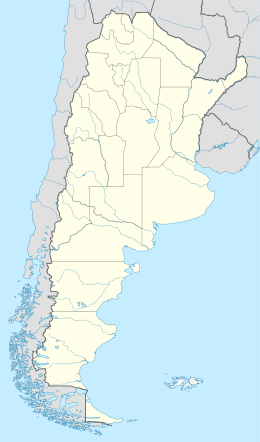Bernasconi, Argentina facts for kids
Quick facts for kids
Bernasconi
|
|
|---|---|
|
Village
|
|
 |
|
| Country | |
| Province | |
| Department | Hucal |
| Established | March 16, 1888 |
| Elevation | 162 m (531 ft) |
| Population
(2001 Census)
|
|
| • Total | 1,781 |
| Time zone | UTC−3 (ART) |
| CPA Base |
L 3023
|
| Area code(s) | +54 2925 |
| Climate | Dfc |
Bernasconi is a village located in the Hucal Department of La Pampa Province, Argentina. It serves as the capital of the Hucal Department.
Contents
How Bernasconi Got Its Name
In 1878, the Argentine government divided up lands in a dry area. These lands were given to a person named Don Ernesto Tornquist. Later, in 1884, he sold his lands to Alfonso Bernasconi.
By 1888, many families had moved to and settled on Alfonso Bernasconi's land. Seeing this, he decided to officially create a settlement. He named this new village after himself: Bernasconi.
Fun Local Festivals
Bernasconi is a lively place with two main annual festivals. These events celebrate the village's history and the different cultures that make up its community.
Fiesta del Piquillín
The Fiesta del Piquillín is Bernasconi's oldest traditional festival. It started in the 1980s and is a big event for the community.
This festival happens every March. It celebrates the anniversary of the village's founding. The local Culture Commission, working with the town's government, organizes the event. You can find local crafts and enjoy performances by folk singers from the area and across Argentina.
Fiesta de los Alemanes
The Fiesta de los Alemanes means "Festival of the Germans." It is an annual event held in October. This timing matches other German-themed festivals like Oktoberfest in Villa General Belgrano in Córdoba, Argentina, and in Blumenau, Brazil.
The festival is organized by a group of people who are descendants of Germans. Many of these families are Volga Germans who moved to Argentina from Russia. During the festival, you can see traditional German dances. You can also try special foods from the region that have German origins.
See also
 In Spanish: Bernasconi para niños
In Spanish: Bernasconi para niños



